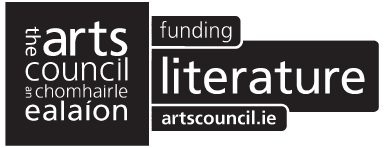War Children (16 page)
Authors: Gerard Whelan

Even in the pitch dark, even though it was miles away by now, I was tempted to look back in the direction of my home. Because I knew now that I’d never see it again.
‘What will happen to the farm, Daddy?’ I asked.
‘I don’t know. We can sell it, maybe. Or maybe we can leave it there to rot. It’s rotting anyhow.’
I didn’t know what to say or think or even feel. It struck me that the very last ordinary thing I’d known had been simply myself and my Mam in the kitchen, with me
dawdling
and her dusting: a very ordinary thing. If I hadn’t been in the kitchen then we might never have noticed the Tans. All these terrible events might never have happened. When I’d walked out our kitchen door today to look for Hannah I had walked into a different world. It had looked just like the world I knew, but it had been populated by devils. I thought of the handsome Tan who’d grinned at me through the window and pointed his rifle at me. Suddenly I wished very hard that he’d pulled the trigger.
I found myself picturing the scene in Sinnotts’ house earlier. All of the Sinnotts would have been around
somewhere
– the seven sons and old Adam. I hadn’t counted the strangers I’d seen, but there’d been about a dozen anyway. That made maybe twenty men as well as the poor old woman, with her boiled eggs and bread and her big pots of tea. I remembered the attacking fire from the open country to the east: the Tans had had the place surrounded. They’d raked it with gunfire and bombed it with grenades, and it was burning now. How many had died because I’d gone looking for Hannah so thoughtlessly? How many had escaped through the dark killing fields? How many of those fine strong Sinnott sons were stretched cold now and dead, or burning with their home?
There are times when your mind can’t afford to dwell on
things. Instead of the Sinnotts, I started to think about Hannah. It might be that she’d survived the attack, though the Tans would blast anything that moved – what else could they do in the dark, where any shadow might be an enemy? Was Hannah even now browsing, unharmed, by the light of the burning farmhouse? Was she running
panicked
with the other stock, lost in unknown fields, a
terrified
refugee just as much as ourselves?
My foolish thoughts were interrupted suddenly by terror. Behind me, so close that I nearly screamed, a voice was raised in a high, sobbing keen that didn’t sound like any human sound. It went on and on, rising and rising, a wild, piercing, wordless howl with all the pain and anguish in it of the whole round world. The banshee! It was the banshee come to get us! I was so frightened that I nearly jumped off the cart into the road, but my father, feeling me starting to move, pushed me down. And then I realised that it wasn’t the banshee. The sorrowful woman keening was my own mother, who’d given me birth, awake now in the back of our bockety cart and keening for a whole lost world of family and friends, and house and home, and maybe – for all I could tell – for our own lost poor Hannah, the poor cow.
Dear Reader,
These stories were part of a big project that I began a few years ago. The idea was to write stories on aspects of the War of Independence period that I didn’t think I’d be able to fit into novels.
The original plan was completely unrealistic – to write between twenty and thirty stories covering country, town and city, and dealing with kids whose families were active in the fight as well as those for whom the entire struggle was simply a calamity. The fact that just six of the finished stories fill a whole book will tell you exactly how foolish a notion this was – I’d need to be writing till Tibbs’ Eve to finish thirty such stories … especially if I wanted to have a life as well.
The stories here are set at various times throughout the period between the end of World War I and the Truce, as follows: ‘The Empty Steps’ (1920); ‘Mulligan’s Drop’ (summer 1920); ‘The King of Irish-town’ (1917–18); ‘Dead Man’s Music’ (1920); ‘Services Rendered’ (1921); ‘The Poor Cow’ (1921).
None of the stories is based on any particular real-life incident – ‘The Empty Steps’, for instance, came from nothing more than a morning spent looking at guns in the National Museum. The germ of ‘Services Rendered’ was a wildly exaggerated family story told to me years ago by my Aunt Kathleen, to whom this book is dedicated. Although she came from a family of tailors, Kathleen was no great shakes with a needle and thread; but in telling supposedly true stories her skills at embroidery were incredible. According to my mother, the story as I heard it was basically a pack of lies, but I thought it was far too good a story not to rip off at some stage, so I’ve done it here.

If you would like to send comments to Gerard Whelan
you may do so at: [email protected]
He would love to hear from you.
Varied experiences in town and country of the War of Independence seen through the eyes of young people. Whelan’s deep knowledge of this period in Irish history, together with his sharp and accurate dialogue and his strong sense of humanity and humour, provide us with exceptional insights and an authentic feeling for the plight of children in wartime.
‘The six short stories in this remarkable collection, set in 1920s Ireland, are examples of narrative at its most absorbing’
Robert Dunbar, The Irish Times
‘Very powerful short stories for young adults’
‘Today with Pat Kenny’, RTÉ Radio 1
‘A riveting read’
Inis, Children’s Books in Ireland Magazine
‘Emotionally charged stories, featuring feisty, likeable youngsters’
Niall MacMonagle,
The Sunday Independent

GERARD WHELAN was born in Enniscorthy, County Wexford, where he now lives. He is the author of several books for children and is a multiple award-winner. His first novel,
The Guns of Easter
, won a Bisto Merit Award and the Eilís Dillon Memorial Award for first-time writers;
Dream Invader
was the overall winner of the Bisto Book of the Year Award.
The Guns of Easter
A Winter of Spies
Dream Invader
Out of Nowhere
This eBook edition first published 2012 by The O’Brien Press Ltd,
12 Terenure Road East, Rathgar, Dublin 6, Ireland
Tel: +353 1 4923333; Fax: +353 1 4922777
E-mail: [email protected]
Website: www.obrien.ie
First published 2002
eBook ISBN: 978–1
–
84717
–
408
–
6
Copyright for text © Gerard Whelan
Copyright for editing, typesetting, layout, design
© The O’Brien Press Ltd
UNAUTHORISED COPYING IS ILLEGAL
All rights reserved. No part of this publication may be reproduced or utilised in any form or my any means, including electronic, digital, mechanical, visual or audio, or mounted on any network servers, without permission in writing from the publisher. Carrying out any unauthorised act in relation to a copyright work may result in both a civil claim for damages and criminal prosecution. For permission to copy any part of this publication contact The O’Brien Press Ltd at [email protected].
British Library Cataloguing-in-Publication Data
Whelan, Gerard
War children
1.Young adult fiction 2.Ireland - History - 1910-1921 - Fiction
I.Title
823.9’14[J]
The O’Brien Press receives
assistance from

Editing, typesetting, layout, design: The O’Brien Press Ltd
Cover image: every effort has been made to trace the copyright holder,
without success; should they contact us we will be glad to hear from them.
